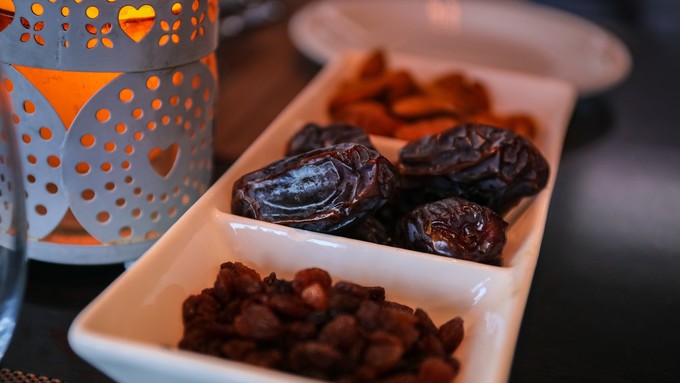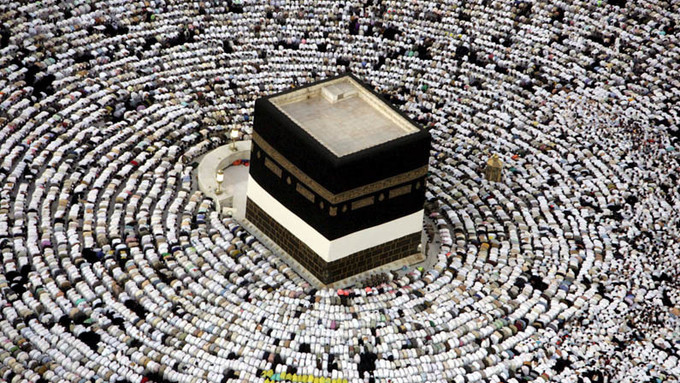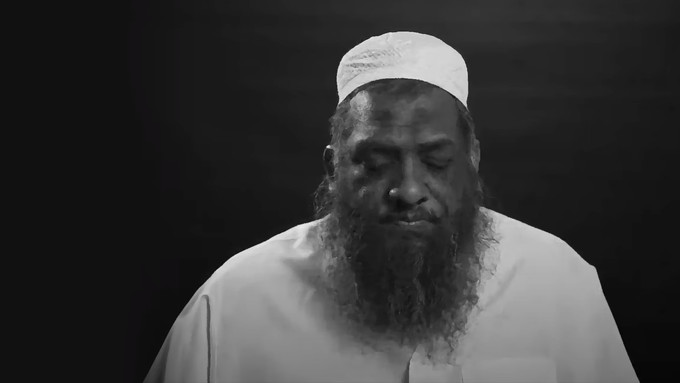Moving Hearts Toward the Beloved Community
This post was originally published on Hagar Lives, and has been modified and reposted with the author's permission.
By Dr. Jamillah Karim
O Allah, honor us by making us the beloved community, and there is no honor except by You. And finally, in these special days, when the selected among our community prepare to walk in the footsteps of our mother Hajar, or Hagar, make us faithful and content with You, as was she when she faced the adversity of being left alone in a new land that You, O Allah, made her home and the home of Your beloved Muhammad, prayers and peace be upon him. And like her, O Allah, may we struggle for Your pleasure so that our children can be at home in this new land, thriving in this new land where the people of Muhammad ﷺ will shine with your light and love. Ameen.
I made this dua before an audience last year at ISNA 2016. Dhul Hijjah, the month of the Hajj, was about to commence.
At that special time of the year again in 2017, though I hadn’t planned it, Allah so beautifully planned that I would have another opportunity to remember Mother Hagar, peace be upon her, on a public platform.
Mohammed Saleem interviewed me for the ImanWire podcast, which was released just days before the commencement of Dhul Hijjah 2017. He opened with a lovely tribute to Mother Hagar, and then connected me and the women of my community to her legacy. What an honor! We discussed my book Women of the Nation for most of the episode, and then he almost had me in tears when he closed with a reading of his favorite quote of mine, from a post on my blog “Hagar Lives.”
“And don’t think that because you love Muhammad Ali and read the Autobiography of Malcolm X, it means that you are down with my people. Rather, it means that Allah has chosen White and immigrant Muslims to be leaders in recognizing what has been done to Black people in this country, that it is your moral duty to truly be brother and sister with Black people, and that God has given you an advantage in the fight for and with Black people by putting love for Ali and Malcolm in your hearts.”
This quote on the love of Ali and Malcolm in the hearts of non-Black Muslims also worked well for Saleem because he wanted to end on a spiritual note. He wanted to move the hearts. And so I responded with comments from my last ISNA talk, where I also aimed for the hearts.
And this is truly the beauty of our mother Hagar as a perfect symbolic fit for the kind of scholarly activism to which I aspire. I am inspired to write passionately about race and gender, but my ultimate passion is being touched by and touching the hearts of people who desire God and His Beloved Prophet ﷺ, above all else.
Mother Hagar embodies the race, class, and gender struggles that I bring to light in my scholarly work, but more than that, she represents the exemplary human being that finds satisfaction with God in the ultimate moment of distress, and as a result, changes the world forever!
_750_476_c1.jpg)
With Hagar I ended my ISNA 2016 talk, remembering her as the one who took the primordial footsteps that forged the way for the Blessed Prophet, prayers and peace be upon him, to later inspire hearts to become the Beloved Ummah. With Hagar, I opened my 2017 talk, aspiring again to inspire us to become the Beloved Community. And so I answered my gracious host — after he read my comments on hearts loving Ali and Malcolm — with my latest reflections on becoming the beloved community as shared at ISNA 2017. Below I share an excerpt of my talk (which can be viewed in its entirety here):
What community is better positioned to be the beloved community? Who are the people of brotherhood and sisterhood? Who are the people that have as its leader, its teacher, guide and model, a human being who embodies the utmost beauty? This human being is none other than the Prophet Muhammad, prayers and peace be upon him.
But have we made the Beloved Ummah a priority? Do we ask for it in our dua?
Ask any Muslim, “What is the American Muslim struggle?” All of us would say the fight against anti-Muslim hate and bigotry. We’ve made that fight our priority. But what is the most effective way to fight anti-Muslim racism in this country?
The scholar and saint Abul-Qasim ibn Muhammad al-Junayd said, “One cannot struggle against his enemy outwardly except he who struggles against his enemies inwardly (and the inward enemies are the desires of the ego). Then whoever is given victory over them will be victorious over his (outward) enemy, and whoever is defeated by them, his enemy defeats him.”
If we do not prioritize the internal struggle—the fight for beautiful hearts—then how can we fight the external enemy of anti-Muslim propaganda and bigotry.
The Qur’an guides us in this regard through the example of the early Muslims, the Emigrants who left Mecca because of religious persecution and the Helpers, the people of Medina, who gave them refuge in their new city.
“...The poor emigrants who were removed from their homes and their possessions. They seek Allah’s grace and pleasure and assist Allah and His Messenger. These are the ones who are true. Those who were already firmly established in their homes [in Medina], and firmly rooted in faith, show love for those who migrated to them for refuge, and harbor no desire in their hearts for what has been given to them. They [the Helpers] give [the Emigrants] preference over themselves, even if they too are poor. And those saved from the covetousness of their own souls—they are the successful ones.”(59:8-9)
How refined were the hearts of the Emigrants and the Helpers! And herein lies the lesson to take home. The early Muslims, their hearts were made beautiful first — love was established in their hearts first —and then they fought and won battles together.
We want to be a beloved community in the eyes of American society, and that is an important and legitimate struggle, but our first priority, and sole concern really, is to be beloved in God’s eyes. “God does not look at your external forms but gazes upon your hearts,” said the Beloved of God, prayers and peace be upon him.
Let us get to the work of making our hearts beautiful, and that is the work of becoming the Beloved Ummah. Our survival and our position in this country depend upon it. We need each other to reach the heights of faith and beauty, the heights of iman and ihsan. For verily, our faith is not a complete faith until we love for our brother and sister what we love for ourselves.
Until we love Malcolm and Ali, and we love the people they loved, Muslim and non-Muslim, Black and non-Black.
Dr. Jamillah Karim holds a doctorate in Islamic Studies and a BSE in electrical engineering from Duke University. She is the author of two books, American Muslim Women: Negotiating Race, Class, and Gender Within the Ummah and Women of the Nation: Between Black Protest and Sunni Islam. Formerly an associate professor in Religious Studies at Spelman College, she blogs on race, gender, and Islam in America at Hagar Lives and lectures internationally.
Faith & Spirituality Related Articles

5 Practical Steps To Get You Ready for Ramadan
As Ramadan is less than a month away, we might feel we often haven't done enough to prepare for it. Here are 5 things we can do right now during Shaban to make sure that we get the most out of Ramadan. The Prophet (Peace & Blessings upon Him & His Family) supplicated,” O Allah give us the blessings of Shaban and give us the treasure of Ramadan.”

Hajj at Home: Kindling the Spirit of Arafah
Even if we are not on Hajj this year, our situation is no different. We navigate through the complexities of our daily life, immersed in the never-ending responsibilities of work and family, inundated with the intrusions of technology and social media into every minute of our lives, moving from place to place and idea to idea.
